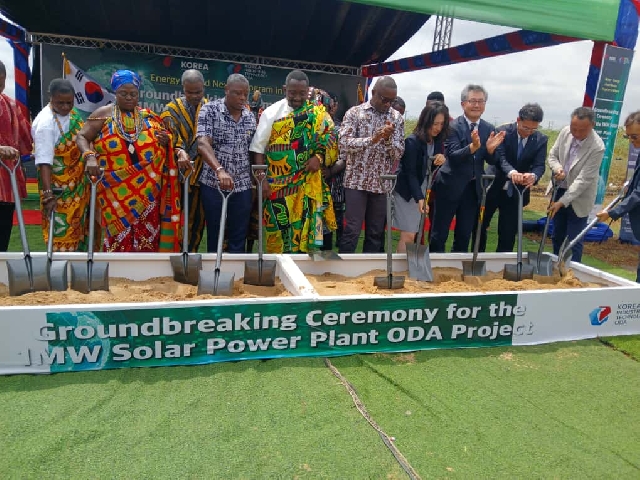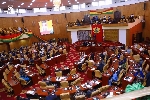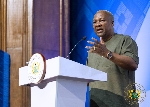Ghana and South Korea partner on water-energy-food nexus project
 Energy Minister breaking ground for the contruction of solar-power irrigation
Energy Minister breaking ground for the contruction of solar-power irrigation
The Minister of Energy and Green Transition, Mr John Abdulai Jinapor, has officially broken ground for the construction of a 1MW solar power plant to support the Dawhenya Irrigation Scheme.
The landmark project, a collaboration between Ghana and South Korea, is designed to promote the productive use of solar energy in agriculture and other key sectors of the economy.
In his address, the Minister underscored the critical link between energy and agriculture, noting that climate change has increasingly disrupted rain-fed farming systems.
He emphasised that Ghana must accelerate investment in clean, affordable, and reliable energy to power irrigation systems, safeguard food production, and strengthen national food security.
Currently, Ghana irrigates just 3% of its cultivated land, despite having irrigation potential of between 360,000 and 1.9 million hectares.
The Minister stressed that scaling up renewable energy-powered irrigation schemes is essential to boosting crop yields, reducing dependence on rainfall, and ensuring resilience against climate change.
The Dawhenya solar-powered irrigation project is expected to:
Provide reliable energy for irrigation systems.
Reduce dependence on costly diesel-powered generators.
Enhance rice production and overall food security in Dawhenya and beyond.
Contribute to Ghana’s climate commitments by reducing greenhouse gas emissions.
Create green jobs for youth and women in agriculture and renewable energy.
Hon. Jinapor commended both local and international partners for their vision, technical expertise, and resources in making the initiative possible.
He called for strong collaboration between the Ministry of Energy and Green Transition, the Ministry of Food and Agriculture, and the Ghana Irrigation Development Authority to deliver impactful and sustainable results.
Officially launching the groundbreaking ceremony, the Minister affirmed that the project represents more than just an investment in energy—it lays the foundation for a resilient, climate-smart agricultural future for Ghana.
He also emphasised the importance of reclaiming and preserving state lands designated for agriculture to ensure they serve their intended purpose of national food security and economic growth.
Source: Classfmonline.com/Edem Afanou
Trending News

W/R: NAiMOS launches major operation in Cape Three Points Forest Reserve, arrests illegal Miners, destroys equipment and drugs
09:06
NPP 2026 Primaries: Kwabena Agyei Agyepong remains a qualified aspirant, campaign teams clarifies
19:47
Renewables overtake coal as world's biggest source of electricity
16:39
Speaker Bagbin postpones commencement of Parliament’s third meeting
16:38
PAJAG applauds President Mahama for strengthening collaboration with CSOs in fight against galamsey
09:06
Junior Doctors' Association of Ghana to withdraw all outpatient and emergency services October 7
11:50
Dzata Foundation hosts youth mental health engagement to mark World Mental Health Day 2025
09:00
Interior Minister warns against attacks on security personnel as Eastern Regional Security Command is inaugurated
15:48
Ashanti Regional MPs react to allegations of opting for community roads instead of flyovers
14:38
GA/R: Tension in Weija-Gbawe as MCE enforces sanitation laws after clean-up exercise
13:51




